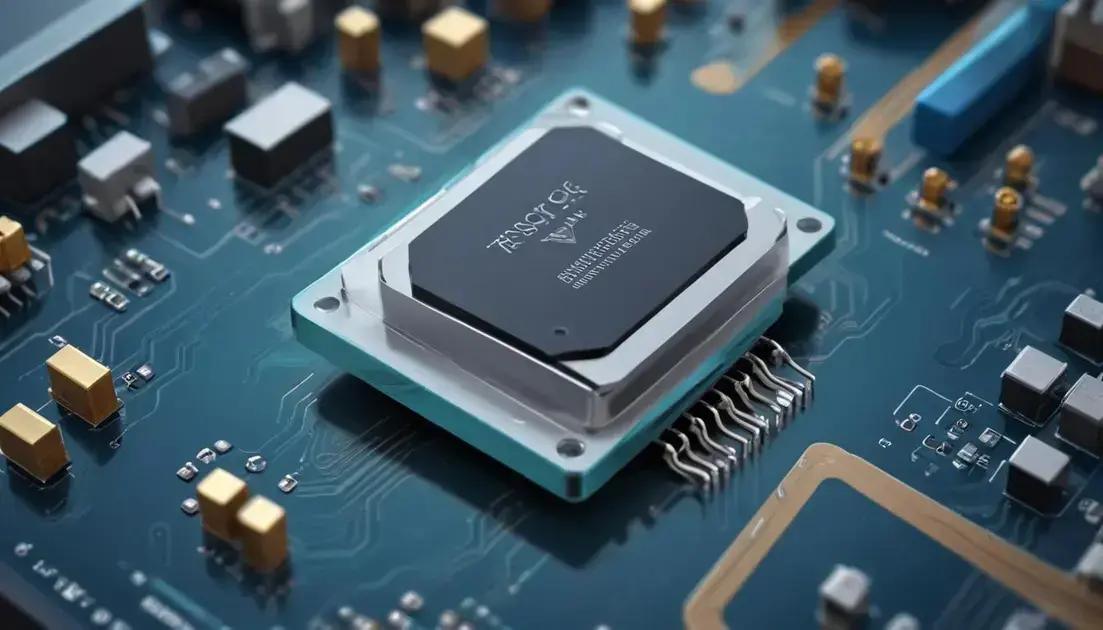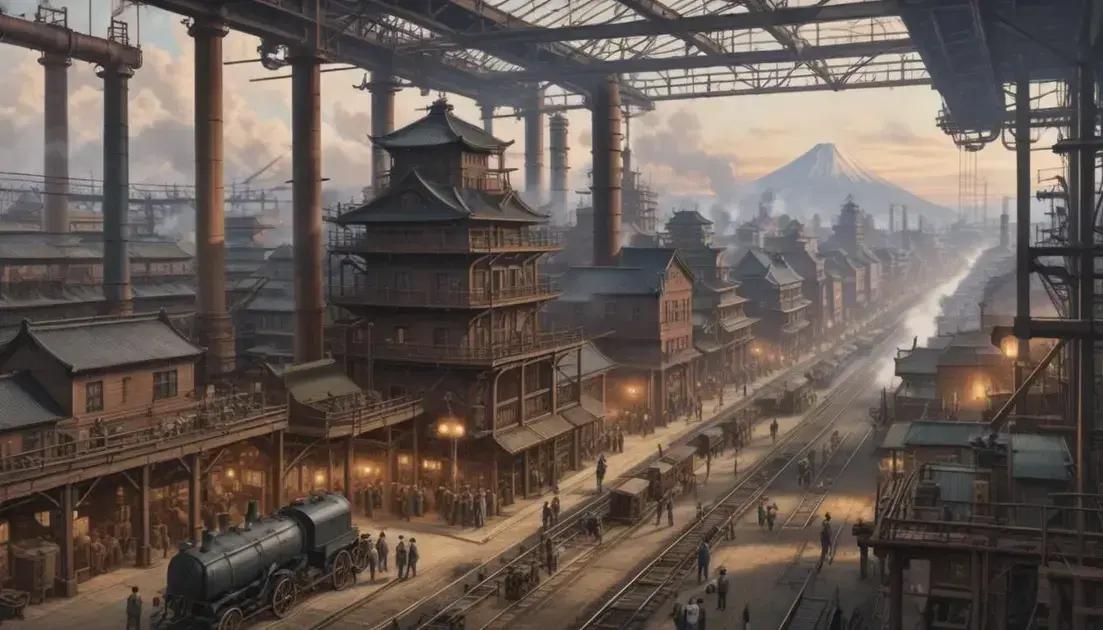
Transistor: Small Component, Big Revolution
Transistors are crucial components in modern electronics, enabling devices like smartphones and computers to operate efficiently. They control electrical flow and can amplify signals, making technology faster and more compact. Future advancements involve new materials like graphene, which promise to enhance performance and energy efficiency. While transistors offer numerous benefits, responsible disposal is essential to address electronic waste. Understanding their impact helps us appreciate technology’s role in our daily lives and its potential for a smarter future.
The transistor may be small, but its impact on electronics is monumental! Ready to dive into how this tiny component changed the tech world?
The Definition of Transistor
A transistor is a tiny electronic component that acts as a switch or amplifier. It’s used in almost all modern electronic devices. Transistors control the flow of electrical current. They help make signals stronger or switch them on and off. This simple idea has a big impact on technology.
Transistors are made of semiconductor materials, usually silicon. These materials can conduct electricity under certain conditions. This ability allows them to play an essential role in computers, phones, and many other gadgets.
Why Are Transistors Important?
The importance of transistors cannot be overstated. Without them, modern electronics would not exist. They make it possible to build complex circuits in a compact space. This size efficiency is what allows our devices to be so small.
How Do Transistors Work?
In simple terms, transistors have three parts: the emitter, the base, and the collector. When a small current flows into the base, it allows a larger current to flow from the emitter to the collector. This action is what makes transistors function as switches or amplifiers.
As technology evolves, transistors continue to become smaller and more efficient. New materials and designs are constantly being developed. These advancements help keep up with the growing demand for faster and more compact electronic devices.
How Transistors Work
Transistors work like smart switches for electricity. They control the flow of electrical current in devices. A transistor has three main parts: the emitter, the base, and the collector. Each part plays a key role.
When a small current is applied to the base, it lets a larger current flow from the emitter to the collector. This means even a tiny input can control a big output. This ability is why transistors are so useful in electronics.
Types of Transistors
There are different types of transistors. The most common types are bipolar junction transistors (BJTs) and field-effect transistors (FETs). BJTs use current to control current, while FETs use voltage. Both types are important for different applications.
Real-World Examples
Transistors are found in many everyday devices. For example, they’re in your smartphone, computer, and TV. They help amplify signals and switch them on or off quickly. This is how you can listen to music or watch videos.
Thanks to transistors, we can have faster and smaller electronic devices. They are the building blocks of modern technology. Without transistors, many of the devices we rely on would not work today.
Applications in Modern Electronics
Transistors are essential in many modern electronics. They are the building blocks of all your favorite gadgets. You’ll find them in smartphones, computers, and televisions. These tiny components enable devices to function smoothly and efficiently.
In smartphones, transistors help process your apps quickly. They switch signals on and off in a matter of nanoseconds. This speed is what makes everything work so well together.
Computers and Transistors
Transistors are also the heart of computers. They manage data and perform complex calculations. More transistors in a computer mean better performance. This is why we see faster and more powerful computers every year.
Television Technology
In televisions, transistors help deliver clear images and sound. They enhance the quality of video display and sound output. Whether you’re watching a movie or a live sports event, transistors play a crucial role.
Beyond these common uses, transistors are in many appliances. They control motors in washing machines and refrigerators. They are even found in smart home devices that make our lives easier.
Environmental Impact of Transistor Technology
The rise of transistor technology has both good and bad effects on the environment. On the one hand, transistors help make devices more energy-efficient. This means they use less power to operate, which is great for saving energy.
Many smartphones and computers are designed to be energy efficient. This helps reduce overall energy consumption. Lower energy use means fewer greenhouse gas emissions. This positive impact is crucial for fighting climate change.
Electronic Waste and Disposal
However, transistors are part of electronic devices that eventually become waste. When these gadgets are discarded, they can create electronic waste or e-waste. E-waste can be harmful if not disposed of correctly.
Some parts of electronic devices contain toxic materials. If these materials are not recycled, they can pollute land and water. Proper recycling can help mitigate this issue and recover valuable materials.
Future Sustainability
To address environmental concerns, many companies are focusing on creating eco-friendly devices. They aim to design products with sustainable materials and longer lifespans. This way, we can enjoy technology without compromising the planet.
Innovation in transistor technology also aims for greener solutions. Researchers are working on new types of transistors that are less harmful to the environment. These advancements could change how we create and use electronics in the future.
Future of Transistors
The future of transistors looks bright and full of potential. As technology advances, researchers are discovering new materials and designs. These innovations aim to make transistors faster and more efficient.
One exciting development is the use of graphene and nanomaterials. These materials can create smaller, faster transistors compared to traditional silicon. This means we could fit even more transistors on a single chip.
Improving Performance
With more powerful transistors, electronic devices can perform better. They can handle complex tasks quickly without draining the battery. This is important for smartphones, computers, and all kinds of gadgets.
Energy Efficiency
Energy efficiency is also a big focus for the future. New transistor designs aim to use less power while maintaining high performance. This could help reduce energy costs and our environmental footprint.
Quantum Computing
Another area to watch is quantum computing. Researchers are looking at transistors that work using quantum mechanics. This could lead to breakthroughs in computing power, solving problems we can’t tackle today.
As we move forward, the role of transistors will continue to grow. They are key to building the next generation of smart devices and technologies. The innovations in transistor technology will shape our world in ways we can only begin to imagine.
Conclusion
In conclusion, transistors play a vital role in modern electronics and will continue to shape our future. They make our devices faster, smaller, and more energy-efficient. With new materials and designs on the horizon, we can expect even greater advancements in technology.
From smartphones to computers and beyond, the innovations in transistor technology are truly exciting. As we see more powerful and efficient transistors, our electronic devices will keep getting better, improving our daily lives.
Understanding the importance of transistors helps us appreciate the technology we use every day. As we move forward, embracing these changes will lead us into a smarter and more connected future.


